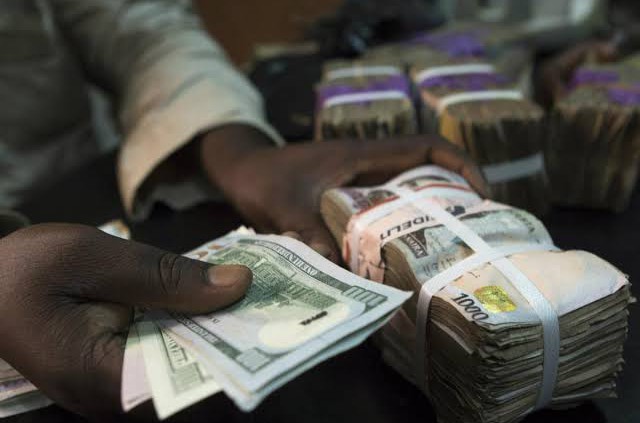Op-Ed.
Naira redesign: Smothered in good intentions

Governments are said to be the next thing after God. But unlike God, who we believe is above errors or mistakes, governments, being the affairs of humans, are prone to errors that could bring catastrophic consequences and problems to the people, the nation, and the State.
And there is a presumption that government intentions are to advance the welfare, security, and progress of the people, the State, and society. This almost totalizing power of government is derived from the constitution or the law; and those, who are charged with executing or discharging these powers are ordinarily expected to act in good faith, in the interest of the people, and not to bring hardship to, or imperil the right of the people to pursue happiness and live as unconstrained citizens.
The recent naira redesign policy of the Central Bank of Nigeria, CBN, projects such mix feelings that it defies categorisation. Generally, there is much merit in the policy to support its implementation; and we did support it at the outset. But subsequent events trailing the policy left a sour taste in the mouth that it sounds so indefensible.
It is inconceivable that a government policy could impose so much hardship on the people without any objective or remedy. The obvious question is, what has been the benefit of the policy on the economy? Was the suffering and sacrifice worth it? A couple of months afterwards, the new naira notes are practically nonexistent. So what went wrong?
The Central Bank is a symbol of the sovereign powers of the State to assert its monetary and trade policies. Its remit includes principally issuing currencies for value. The currency is the only medium of exchange within the State and with the international communities. The strength of a nation’s currency reflects its economic strength, the stability of its financial system, and its socio-political order.
The Central Bank of Nigeria Act of 1959 (which has been amended severally, the latest being the CBN Act of 2007) assigned five main functions to CBN: ensure monetary and price stability; issue legal tender currency in Nigeria; maintain external reserves to safeguard the international value of the legal tender currency; promote a sound financial system in Nigeria and act as the bankers’ Bank…
Although the considerable percentage of the Naira outside the banking system has been the significant primary justification for the decision to change the colors of the 200, 500, and 1000 Naira notes, it was evident that the underlining intention was to deny politicians the capacity and propensity to buy the 2023 elections. If that were sincerely the intention, no patriotic Nigerian would have questioned the soundness and morality of the decision.
On the strength of this, this newspaper supported the decision. But like all plans that were not well thought through, it became a theatre of the absurd. Not even public protest and threats of strikes could move the obstinate Buhari regime. Not even the Supreme Court judgment initiated by the All Progressive Congress APC governors, the President’s party, who feared the people’s wrath during the election, could move the President. The only thing that moved the President was his lack of capacity to enforce his policy.
He could not even print enough of the new notes to meet the basic demands. The CBN, it would seem, has lost its mystics and fallen flat on its face. It had to pull out the old notes, again at the instance of the Supreme Court. Even four months down the road, the economy is still crawling. Only a few Nigerians had seen the new notes.
The consequences have been an unmitigated disaster. The CBN failed to meet its obligation to the people, blood was shed in some parts of the country, and the economy denied the oxygen of full throttle to accelerate at any speed. Inflation accelerated, as poverty climbed into higher digits. Nothing like it has ever happened in Nigeria since the civil war. It will remain the lasting legacy of the Buhari Administration.
The incoming Administration must conduct a forensic investigation into this breach of the public trust and the failure of a policy intended to sanitise the financial system and restore confidence in the ability of the CBN to act as the nation’s refuge on financial matters. The outcome of the investigation should unearth systemic failings and provide a pathway for the system’s reform. It would also warn the incoming Administration that public policy must be appropriately designed and executed with the people’s interest as the only compelling objectives.
Nigeria’s management, use, and abuse of the Naira and kobo have been the national currency’s bane, steadily declining since the mid-seventies. The failure of the CBN to manage the foreign exchange market has eroded the confidence of citizens to keep money in banks.
Therefore, according to the CBN, it is no wonder that over 60 percent of currency in circulation is not in the banking system.
The spraying of wads of Naira notes and even various foreign currencies in parties and other social functions are the norms in Nigeria even as it is a criminal offense under section 21(4), which states that “it shall also be an offense punishable under subsection ( 1) of this section for any person to hawk, sell or otherwise trade in the Naira notes, coins or any other note issued by the Bank”.
The recent measures to protect the Naira and the cashless policy, the norm in global trade and business transactions, are reasonable measures that Nigerians must encourage. Still, these measures would remain futile if the CBN and the regulatory authorities cannot enforce the rules and regulations.
Another problem crippling the CBN is its loss of independence, the politicization of monetary policies, corruption, and the smothering of initiatives, even if they are well-intentioned.











